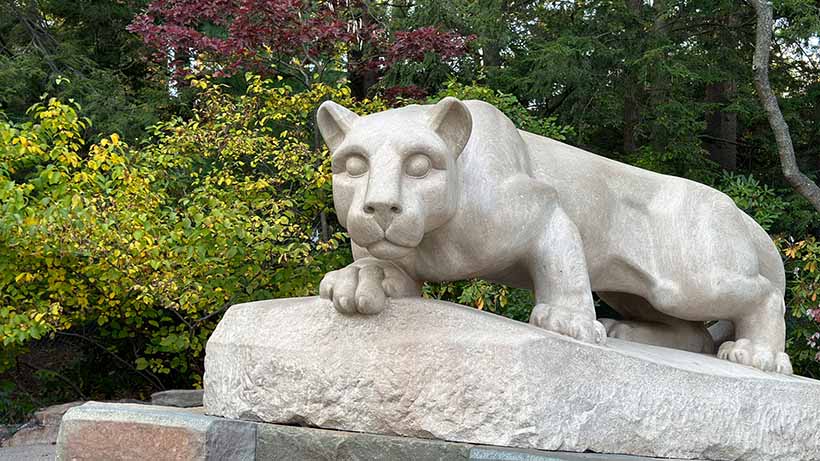Years ago, Shane Hale would never have imagined that he'd be attending graduate school online through Penn State while working for a large private research university to help student veterans like himself.
He took the long road to get his bachelor’s degree, joining the Army in August 2001 to use the GI Bill® to help finance his college education.
Following two deployments to Iraq, Hale left the Army and moved to North Carolina to attend community college and eventually transfer to his dream school, the University of North Carolina at Chapel Hill.
“I struggled a little bit as an older, non-traditional student — as a student veteran,” Hale said.
After graduation, Hale reflected on why his expectations of college didn’t come to fruition and researched others’ experiences.
“I learned that student veterans across the board tend to have similar challenges. I had Imposter Syndrome, feelings of isolation, dealing with an identity crisis, a whole bunch of things,” Hale said. “So, I decided to build a career in higher education, focusing my efforts working with student veterans and helping them with a sense of belonging and succeeding.”
Hale now serves as the program manager for the Office for Military-Affiliated Communities at Stanford University and is pursuing a Master of Education in Higher Education online through Penn State World Campus.
“If it wasn’t for this program, I probably wouldn’t be here doing my dream job,” he said.
Working toward a graduate degree
The 30-credit online master’s in higher education provides students with the practical skills and knowledge necessary for a career in postsecondary education. The program is part of a more than 50-year-old higher education curriculum offered by the Penn State College of Education.
“It really came down to flexibility and reputation,” Hale said of his choice to learn online through Penn State World Campus.
He enrolled in 2019 while working in a first-year transition program for student veterans. Because of his student engagement work schedule and two cross-country moves, Hale said asynchronous courses were vital to his success.
After the pandemic hit, Hale moved to Pennsylvania for a management role at a community college.
“I felt like the program and the courses I took really prepared me for that next level,” he said. “I was able to build on what I knew and grow and learn new things.”
Hale was able to apply concepts from his courses in his position, where he had to perform student assessments, but after spending time at the community college, he missed the environment of a large research institution. So, he applied and was hired for a position at Stanford University in California.
Applying skills and knowledge to help others
At Stanford, Hale strives to help create the community he wanted when he was an undergrad.
“You’re providing a safe space for them. You’re providing programming and services that support them while they’re pursuing their educational goals — building a community,” Hale said. “One of the challenges student veterans can face when transitioning out of the military into higher education is they can feel really isolated. They lost the camaraderie they had in the military, and it’s hard to find that in institutions of higher education.”
His position includes organizing events for military-affiliated campus community members and advocacy work to ensure the campus as a whole is doing its best to support military students. Hale also plans programming with CareerEd colleagues to provide career development workshops where students learn how to translate their military service on their résumés.
“It’s just switching NCO to manager; something as simple as that to translate it into civilian language,” he said.
Learn more about the Master of Education in Higher Education offered online through Penn State World Campus.
GI Bill® is a registered trademark of the U.S. Department of Veterans Affairs (VA). More information about education benefits offered by VA is available at the official U.S. government website at www.benefits.va.gov/gibill.

